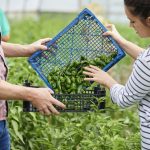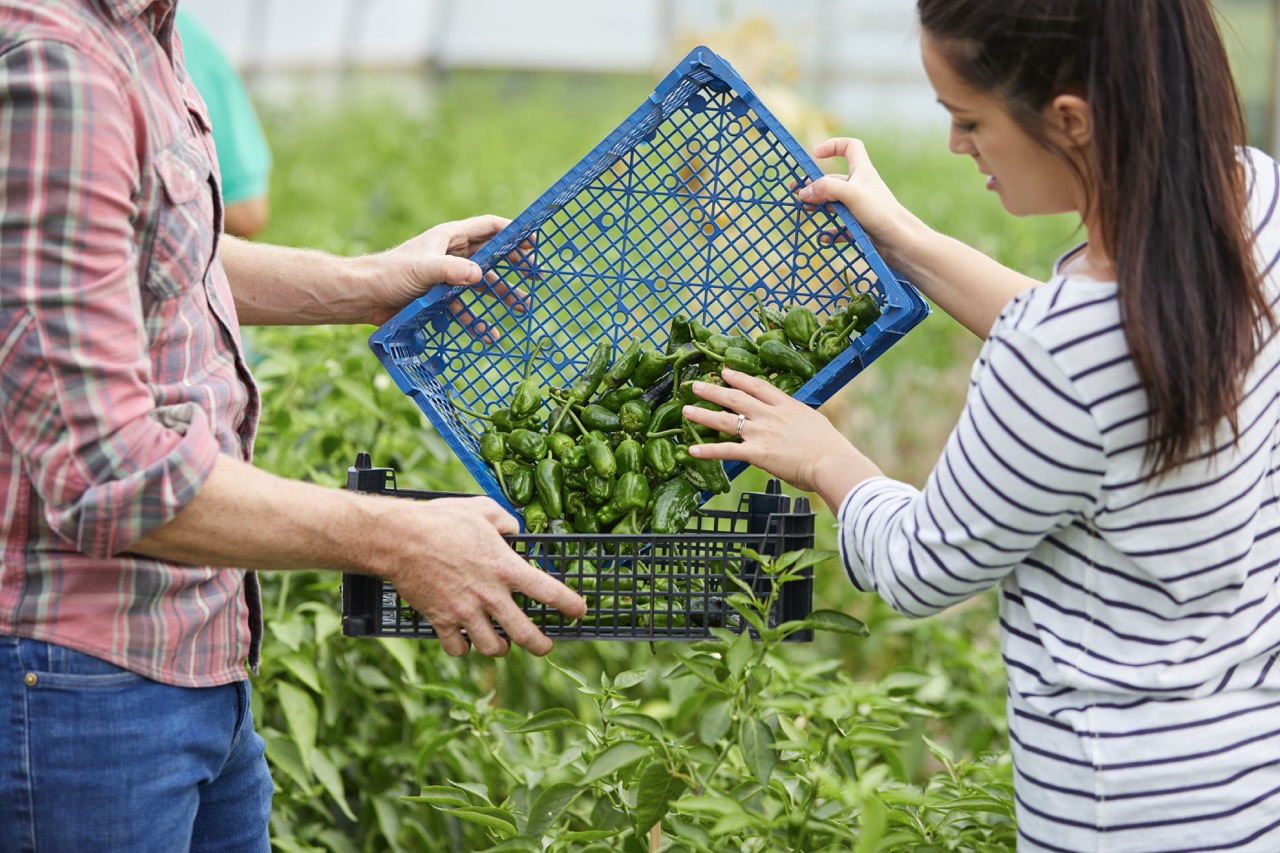In recent years, biotechnology has emerged as a transformative force in agriculture, reshaping the landscape of food production and farming practices around the globe. As the world grapples with the challenges of climate change, population growth, and shrinking arable land, biotech offers innovative solutions that promise to enhance crop yields, improve resilience, and reduce the environmental impact of farming. This article delves into how biotechnology is revolutionizing modern agriculture, explores key innovations such as genetically modified organisms (GMOs) and CRISPR technology, examines sustainable practices made possible through biotech, and discusses its critical role in ensuring future food security.
How Biotechnology is Revolutionizing Modern Agriculture
Biotechnology has fundamentally altered traditional agricultural techniques by incorporating advanced scientific methods into crop production. The ability to modify the genetic makeup of crops has led to the development of varieties that are not only more productive but also more resistant to pests and diseases. Farmers are increasingly adopting these genetically engineered crops, which can thrive in challenging conditions, thus reducing dependency on chemical pesticides and fertilizers. This has provided a lifeline to farmers in regions where climate conditions previously hindered agricultural productivity.
Moreover, biotechnology facilitates the rapid development of new crop varieties that can withstand stresses caused by climate change, such as drought and extreme temperatures. For example, drought-tolerant maize and salt-resistant rice have been developed through biotechnological advancements, providing farmers with options to cultivate crops in areas that were once deemed unfeasible. This adaptability is crucial as global climate patterns continue to shift, posing challenges to conventional farming practices.
Furthermore, biotechnology contributes to enhancing nutritional content in crops, helping to combat malnutrition in various parts of the world. Biofortified crops, such as Golden Rice enriched with vitamin A, aim to provide essential nutrients to populations that rely heavily on staple grains. By improving food quality and safety, biotechnology plays a pivotal role in addressing not only economic but also health-related challenges in agriculture.
Key Innovations: GMOs, CRISPR, and Beyond in Farming
Among the most significant innovations in agricultural biotechnology are genetically modified organisms (GMOs), which have been at the forefront of this revolution for decades. GMOs are engineered to express specific traits such as pest resistance, herbicide tolerance, and enhanced nutritional profiles. This technology has enabled farmers to increase their yields and reduce losses, resulting in more efficient food production systems. The widespread adoption of GMOs has also led to the development of more resilient crops that can sustain agricultural productivity in the face of biotic and abiotic stressors.
CRISPR technology, a newer and more precise method of gene editing, is further pushing the boundaries of agricultural biotech. This powerful tool allows scientists to make targeted changes to the genetic code of crops, leading to the development of varieties that are tailored for specific farming conditions. For instance, CRISPR can be utilized to develop crops with improved disease resistance or altered flowering times, providing farmers with more tools to adapt to their unique environments. The precision of CRISPR also minimizes the risk of unintended consequences, making it a compelling choice for future agricultural innovations.
Beyond GMOs and CRISPR, advancements in synthetic biology and microbiome research are paving the way for novel agricultural practices. Synthetic biology enables the design of organisms that can perform specific functions in the ecosystem, such as nitrogen-fixing bacteria that can reduce the need for synthetic fertilizers. Similarly, understanding the plant microbiome—the community of microorganisms living on and within plants—can lead to the development of bioinoculants that promote plant health and growth. These innovations not only enhance agricultural efficiency but also hold the potential to revolutionize how we approach farming in the 21st century.
Sustainable Practices: Reducing Environmental Footprints
Biotechnology is increasingly recognized for its role in promoting sustainable agricultural practices that can significantly reduce environmental footprints. One of the key benefits of biotech crops is their ability to minimize pesticide use. Crops engineered for pest resistance reduce the need for chemical interventions, leading to less chemical runoff into local ecosystems. This not only preserves biodiversity but also protects water quality, which is critical for sustaining healthy agricultural practices and communities.
Additionally, biotechnology supports conservation tillage practices, which are essential for maintaining soil health and reducing erosion. By developing crops that thrive in reduced-tillage systems, farmers can minimize soil disturbance and improve carbon sequestration in the soil. This approach contributes to climate change mitigation while also enhancing soil structure and fertility, ultimately leading to more sustainable farming systems.
Moreover, biotechnology facilitates agricultural practices that enhance resource efficiency. For instance, crops that require less water or nutrients can help farmers optimize their input use, which is crucial in areas facing water scarcity or nutrient depletion. By adopting biotech solutions, farmers can not only improve their economic viability but also contribute to a more sustainable and resilient agricultural system that benefits both current and future generations.
The Future of Food Security: Biotech’s Role Explained
As the global population continues to rise, the demand for food is projected to increase significantly in the coming decades. Biotech holds the key to meeting this challenge by enabling higher food production with fewer resources. Innovations in agricultural biotechnology can help increase crop yields, boost food quality, and expand the availability of diverse food options. By leveraging the power of biotechnology, farmers can better meet the nutritional needs of a growing population while reducing the environmental impact of their practices.
Furthermore, biotechnology can play a vital role in addressing food insecurity, particularly in regions that struggle with agricultural productivity due to adverse climatic conditions or limited access to resources. Biotech crops designed to thrive in harsh environments can provide much-needed food security to vulnerable populations. By ensuring that food production systems are resilient and adaptable, biotechnology is a critical component in the fight against hunger.
Finally, collaboration between governments, research institutions, and the agricultural sector is essential to harness the full potential of biotechnology for food security. Policymakers must create an enabling environment that supports biotech research and development while addressing public concerns around safety and ethics. By fostering open dialogue and transparent communication, stakeholders can work together to ensure that biotechnology contributes positively to a sustainable and secure food future for all.
In summary, biotechnology has emerged as a cornerstone of modern agricultural advancements, offering innovative solutions to some of the most pressing challenges faced by farmers today. From GMOs and CRISPR to sustainable practices that reduce environmental footprints, biotech is reshaping the way we produce food and manage agricultural systems. As we look toward the future, the role of biotechnology in ensuring food security will be critical, requiring collaboration and commitment from all sectors involved in agriculture. Embracing these advancements will be essential for building a resilient, sustainable, and secure food system for generations to come.








